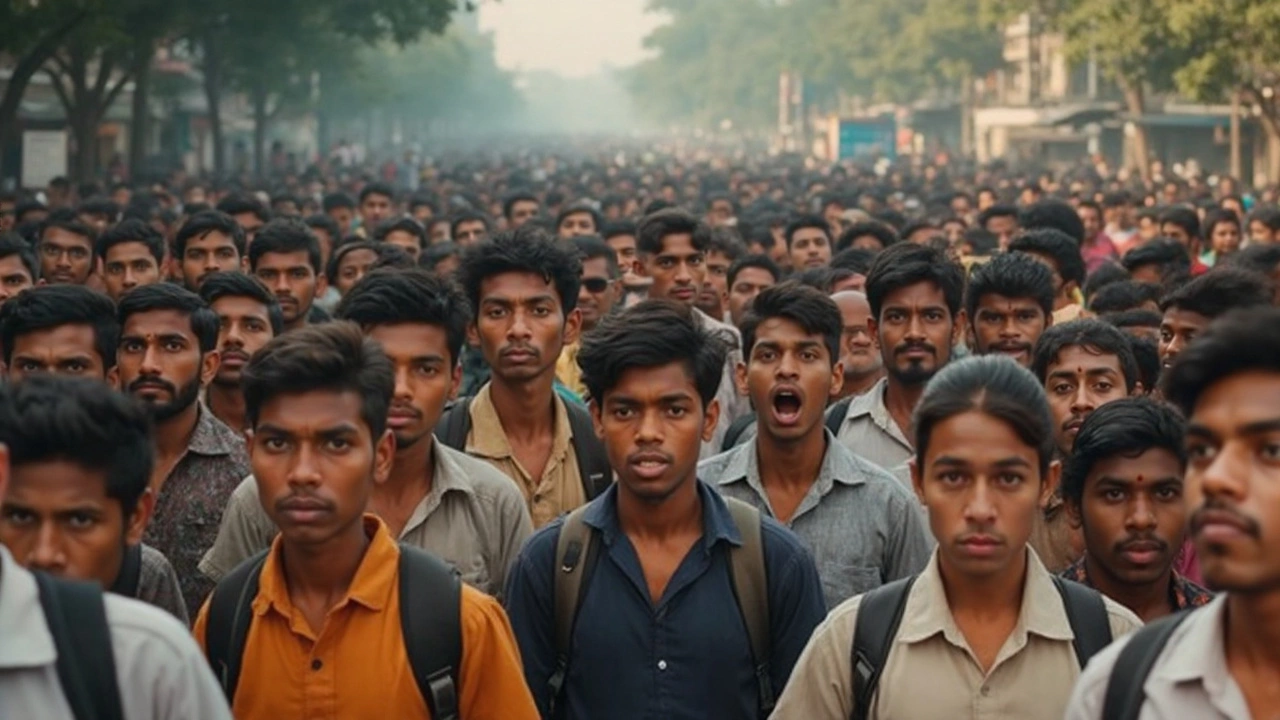If you’ve scrolled through job boards lately, you’ll know that government jobs seem like some kind of golden ticket. There’s this belief out there—maybe your parents told you, maybe your neighbor—that government gigs are the safest, the steadiest, the ones with the best benefits. But how likely is it, really, to get a government job, especially in 2025? Sure, the idea sounds attractive: less chaos, set hours, something to brag about at family gatherings. But for every opening, there’s a line of applicants longer than a Monday morning coffee queue. So, what are your real odds, and what’s it like behind those imposing marble walls?
What Do the Numbers Really Say?
You’ll find plenty of opinions on government hiring, but let’s start with data. The U.S. federal government, to toss in a concrete example, has around 2.2 million civilian employees. In 2024, about 110,000 federal positions opened up. That might sound like a lot, but hold on—a typical job listing draws more than 400 resumes. State and city governments tell a similar story, with thousands of jobs advertised yearly and armies of hopefuls applying.
This isn’t just happening in the United States. Take India, for example. Government jobs there are nicknamed “sarkari naukri” and are a massive deal, offering steady pay and social respect. According to a 2024 report, more than 20 million people competed for fewer than 150,000 positions in government banking, railways, and clerical posts. That’s basically like chasing one chair in a stadium with thousands of people sprinting for it.
Let’s talk percentages. Your odds vary massively based on the position, your experience, location, and sometimes, a dash of luck. The acceptance rate for general federal jobs in the U.S. often hovers under 10%. Civil services in India? Sometimes less than 0.5% for premium roles. In the UK, recent figures from the Civil Service show roughly one in every fifteen applicants snags a role. Competition is razor-sharp almost everywhere you look.
| Country | Applicants (2024) | Jobs Available | Acceptance Rate |
|---|---|---|---|
| USA (Federal) | ~4.4 Million | 110,000 | ~2.5% |
| India (Central Govt.) | 20 Million+ | 150,000 | <1% |
| UK (Civil Service) | ~600,000 | 40,000 | 6-7% |
So, yes, the hunt isn’t easy. Still, tens of thousands do get in every year. But what’s really happening behind these stats? Some of these jobs require specialized degrees, clear security checks, and a perfectly crafted application—which narrows your competition down a bit if you check those boxes.
What Makes Government Jobs So Popular?
If you ever wondered why there’s such a mad rush, it boils down to a few things. First, the pay is competitive—maybe not flashy startup money, but you won’t be living off instant noodles either. The real draw is job security, especially when private companies are laying people off like confetti at a parade. The perks? Health care that won’t give you anxiety, pensions that actually deliver, paid parental leave, and for many, decent work-life balance.
Ever heard stories about people sticking with the same employer for 25 years? Yep, that often happens in government. The work hours are usually predictable; you’re unlikely to get late-night “emergency” calls unless you’re a firefighter or in public safety. For many folks—like my wife Mira, whose cousin works for the Department of Education—it’s about knowing she can plan holidays months ahead, without worrying about last-minute layoffs. Plus, you get holidays that private workers can only envy: government holidays, snow days, and sometimes, even extra time off when things are slow.
Prestige is another big one. Whether it’s cultural or just family tradition, there’s a sense that working for the government makes you “official.” In some countries, government officers get their own housing, separate entrances at events, and can influence how things work locally. For young grads, especially, that kind of respect is a huge carrot.
Then, there’s the impact. If you want a job where you feel like what you do matters—helping veterans, protecting national parks, keeping city schools running—government work checks that box. Even if the paperwork can get boring, knowing your work shapes other people’s lives brings its own kind of job satisfaction. That’s not something every corporate office can claim.

The Biggest Barriers to Getting Hired
Alright, let’s get honest. The process to land a government job can take months—sometimes over a year. The application portals are a maze, with instructions that read like they were written by three different committees. Forget uploading a one-page resume and clicking send; you’ll have to answer essay questions, document every job you’ve had since high school, and maybe take a written test or two. Security clearances? Expect to wait, bite your nails, and maybe wait some more.
Some people quit halfway through just because of how long (and somewhat impersonal) the process is. Then, there’s the strict eligibility: You need to have the right degree, the right age, no criminal records, sometimes even live in a specific area. For example, technical roles come with elaborate “minimum qualification” lists that go on forever. And if you forget to provide one document? Sorry, not sorry.
Even when you check all the boxes, the competition isn’t just about your diploma. Government hiring panels look for people who fit their idea of “reliable,” whatever that means in the local office. Personal connections don’t count for as much as you might think, at least according to a 2023 study by RAND Corporation on U.S. federal hiring. Still, every once in a while, you’ll hear of someone who knew somebody, but those are rare wins, not the rule.
If you aim for high-level roles, like administrative services or policy assignments, expect more rounds: Prelims, mains, personality tests, maybe group discussions. Each of these rounds tosses out a chunk of the competition. Medical exams can get weirdly detailed (my neighbor had to redo his vision test three times), and background checks mean a slip-up from 10 years ago can haunt you.
COVID and the whole remote revolution have shifted things, too. Governments moved some hiring events and interviews online, which helps more people apply but also means resumes pile up faster than ever. A result? Greater competition, more applicants per role, and slower going for everyone.
Smart Ways to Boost Your Chances
If you’re fired up to try for a government job, you need a plan. It starts with picking the right job. Don’t shoot for positions just because they sound impressive; go after ones that fit your education and skills. A 2024 LinkedIn survey found that applicants who tailored their resumes to specific government roles were three times more likely to get shortlisted. So, match your experience line by line to the job requirements.
The application essays (yep, most require these) are not busywork. Each answer lets you show that you “get” the values of government service. Drop cookie-cutter buzzwords, and try sharing specific examples of leadership, teamwork, and integrity. If you supported your community during a tough time or took on extra projects, highlight that. Numbers help: "Ran a team of 18,” "Reduced processing time by 32%,” that sort of thing.
- Read every instruction carefully. Missing a single document is the most common reason for application rejection.
- Stay on government job portals and official sites, not random third-party listings. Scams are everywhere nowadays.
- Keep a paper copy of your entire application process—a screenshot of everything—since portals sometimes crash mid-application.
- Practice for the written exams. Free online mock tests and sample question banks are out there for almost every government exam in major countries.
- If you’re headed for an interview or group discussion, prepping answers in advance matters. Ask friends to quiz you—real questions, not just the “tell me about yourself” stuff.
Finding a mentor helps, too. There are free coaching groups, forums (Reddit, Quora), and social media hashtags where applicants share experience, tips, and even the occasional hack. Don’t skip networking—there are job fairs (virtual and live) aimed only at public sector roles.
Watch government hiring schedules like a hawk. Some departments only recruit once a year, and deadlines are strict. Procrastinating is the enemy.
And don’t give up after one failed shot. Most people—yes, most—don’t get in on their first try. Apply smart, be patient, and treat every attempt as a learning curve. Remember, it's not just about ticking boxes, but showing you’re in it for the right reasons. If you want proof it works? Look at the civil servants’ stories trending on social media every year—dozens posted about getting hired after three, four, even five tries. That’s persistence most people never see, but real people do win this game.
